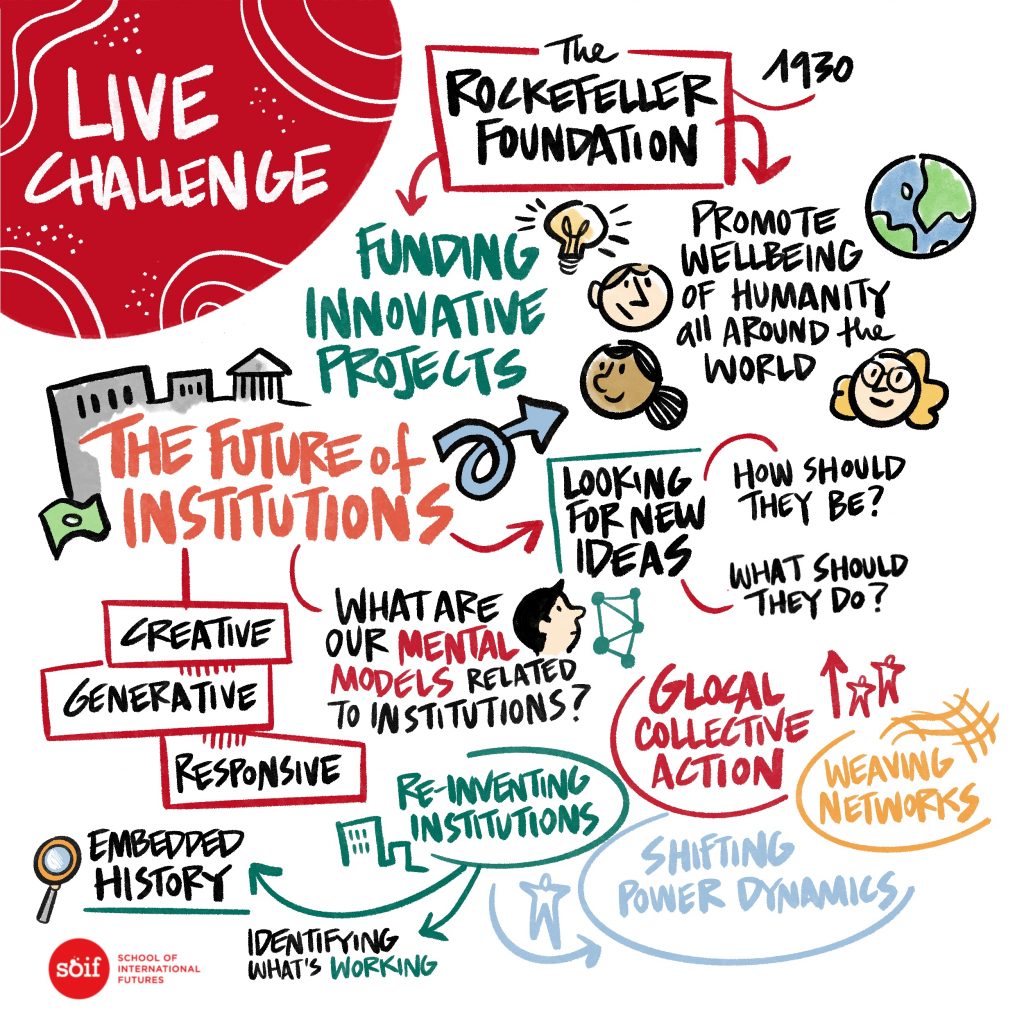
One of the distinctive features of the SOIF Retreat is the Live Challenge. Rather than using the ‘case’ method, we have a challenge that is set by a client or partner on an issue of current concern. The challenge is set on the first day of the retreat when participants join, and they report back on the fourth day, having applied their futures learning to the challenge.
This year, the challenge has been set by the The Rockefeller Foundation, and it goes like this:
In 2050, how might people connect on global issues in an equitable and responsive way for the wellbeing of humanity?
A second part of the question asks about the opportunities and challenges that may arise for global cooperation—and what effective global institutions look like. It’s the midpoint of the week, and the clock is ticking as our Retreat participants count down towards the moment of presentation, and they’re spending much of the day developing their scenarios.
I took stock of the emerging ideas with Faculty Director Dr. Marius Oosthuizen as we broke for lunch:
Things are emerging about the way in which climate change is going to shape citizen activism—as climate change increases, citizen action increases. The question that then opens is whether the authorities harness this action in constructive ways or whether they clamp down on it.
There’s another interesting set of connections emerging on tensions between states, polarisation of trade relationships, and the effects of digital connections. If we end up in this more fragmented world, there’s a real danger that citizens continue to lose trust in their own institutions—and this also translates into suspicion of people from other countries as well.
The next task will be to turn some of the emerging high level narratives into relatable scenario stories. This morning a panel that included Mat Burrows of the Atlantic Council, the design futurist Prateeksha Singh—a former NGFP Main Award winner—and Richard Kelly of the Guild of Future Architects shared observations with participants about how to craft scenario stories.

There’s another interesting set of connections emerging on tensions between states, polarisation of trade relationships, and the effects of digital connections. If we end up in this more fragmented world, there’s a real danger that citizens continue to lose trust in their own institutions—and this also translates into suspicion of people from other countries as well.
Seems to me that trust in own institutions will go up since they deliver a more reliable, secure supply of products. I agree suspicion of other people will go up, due to “why can’t we trust the to do the right thing?”